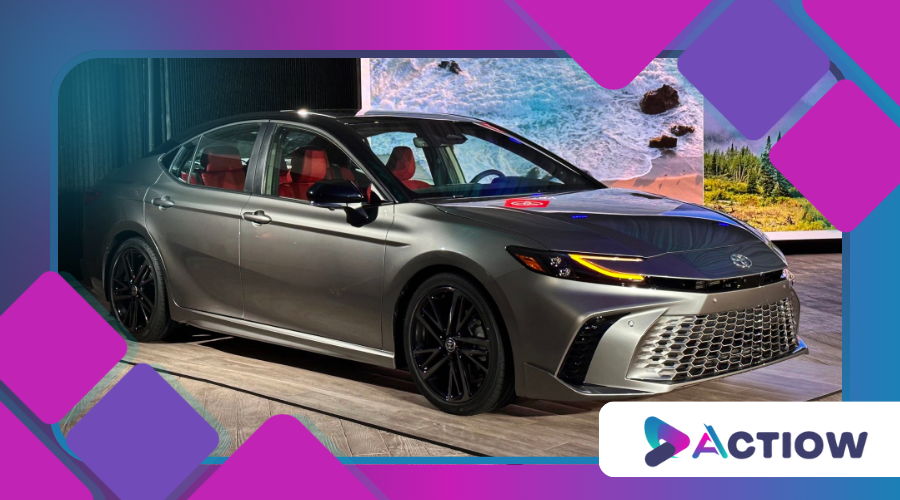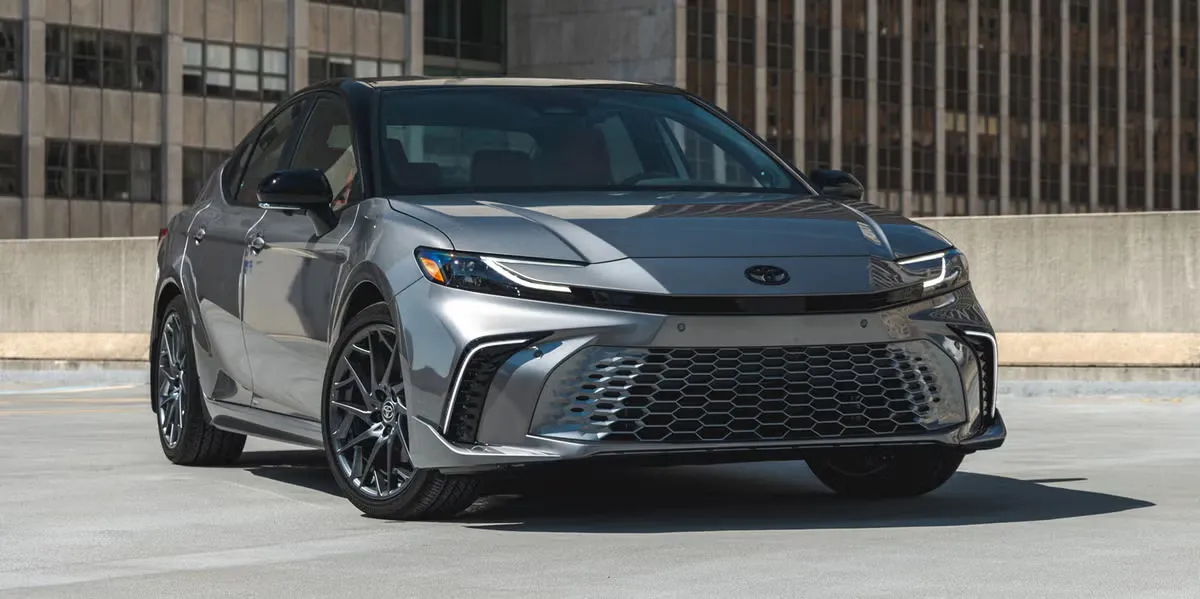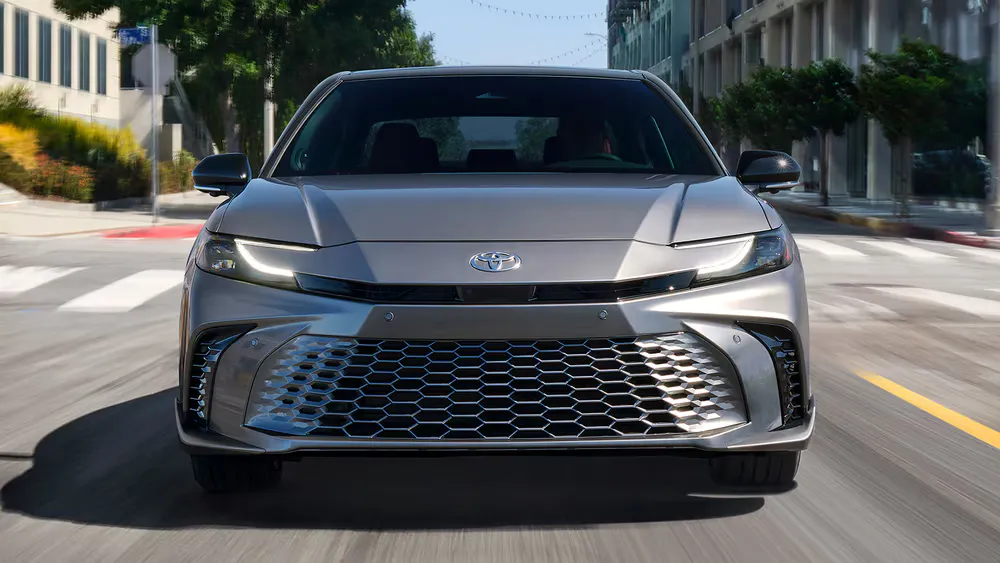Toyota’s 2025 Releases: What to Expect from the New Hybrid Generation

Anúncios
The automotive world is buzzing with anticipation as Toyota prepares to redefine efficiency and innovation with its new hybrid generation in 2025.
Known for pioneering hybrid technology with the iconic Prius, the Japanese automaker is doubling down on electrification, performance, and sustainability.
This year’s lineup promises groundbreaking advancements in battery efficiency, smarter powertrains, and bolder designs—proving once again why Toyota remains a leader in the hybrid revolution.
Anúncios
With a focus on reducing environmental impact, Toyota aims to make hybrid technology more accessible to a wider audience.
As consumer demand for sustainable vehicles grows, the automaker is poised to meet these expectations with innovative features that enhance both performance and eco-friendliness.
Moreover, Toyota is investing heavily in research and development to ensure that its hybrids remain at the forefront of technology.
This commitment not only reflects the company’s dedication to sustainability but also its understanding of evolving consumer preferences.
By prioritizing innovation, Toyota is setting a standard that encourages other manufacturers to follow suit, which could lead to a significant shift in the automotive landscape.
The Evolution of Toyota’s Hybrid Dominance
Toyota didn’t just popularize hybrids—it perfected them.
Since the first Prius rolled off the line in 1997, the brand has sold over 20 million hybrids worldwide (Toyota Global Newsroom, 2024).
Now, the new hybrid generation takes this legacy further with next-gen lithium-ion batteries, enhanced regenerative braking, and AI-driven energy management.
These advancements signify not just an improvement in technology but a commitment to sustainability as well.
As the automotive industry shifts towards electrification, Toyota’s efforts to innovate in hybrid technology set a benchmark for competitors.
The company’s strategic partnerships with tech firms also play a crucial role in enhancing its hybrid offerings.
By collaborating with experts in battery technology and artificial intelligence, Toyota is ensuring that its hybrids are not only efficient but also equipped with cutting-edge features.
This synergy between automotive engineering and technology is essential for creating vehicles that meet the demands of modern consumers.
Key Innovations in the 2025 Hybrid Lineup
- Fifth-Generation Hybrid System
- More compact, lighter, and 15% more efficient than its predecessor.
- Improved thermal management extends battery life in extreme climates.
- Dynamic Force Engine Upgrades
- Optimized Atkinson-cycle engines deliver higher torque at lower RPMs.
- Seamless electric-to-combustion transitions for smoother acceleration.
- AI-Powered Predictive Energy Use
- Real-time traffic and terrain analysis adjusts power distribution.
- Learns driving habits to maximize fuel savings.
+ Electric Cars 2025: Discover the Models That Will Dominate the Roads
| Model | Expected MPG (Combined) | Electric-Only Range |
|---|---|---|
| 2025 Toyota Camry Hybrid | 52 mpg | 2 miles |
| 2025 Toyota RAV4 Hybrid | 48 mpg | 3 miles |
These innovations not only enhance the driving experience but also contribute to Toyota’s goal of reducing carbon emissions.
By integrating advanced technology into their hybrids, Toyota is setting a new standard for efficiency in the automotive industry.
Additionally, the focus on user-friendly interfaces ensures that drivers can easily navigate the advanced features of their vehicles.
This commitment to usability is essential as consumers increasingly expect technology to be intuitive and accessible.

Design Meets Aerodynamics
Gone are the boxy silhouettes of early hybrids.
Toyota’s 2025 designs embrace sleek, wind-cheating profiles without sacrificing cabin space.
The upcoming Prius Prime, for instance, features a lower drag coefficient (0.24) than a Tesla Model 3, while the Crown Signia Hybrid blends SUV ruggedness with coupe-like elegance.
This attention to design not only improves aerodynamics but also enhances the overall aesthetic appeal of the vehicles.
Consumers are increasingly looking for cars that are both functional and stylish, and Toyota is responding to this demand.
The integration of design and functionality is also evident in the choice of colors and materials, which reflect modern trends and consumer preferences.
By prioritizing aesthetics alongside performance, Toyota is appealing to a broader range of buyers who value both style and substance in their vehicles.
Interior Tech: Where Comfort Meets Connectivity
- Next-Gen Infotainment: Faster processors, over-the-air updates, and augmented reality navigation.
- Sustainable Materials: Recycled fabrics, plant-based plastics, and ultra-thin yet durable vegan leather.
The integration of modern technology into the interior creates a more enjoyable driving experience.
With features designed to enhance connectivity, drivers can stay informed and entertained on the go.
Moreover, the focus on sustainability in interior materials aligns with Toyota’s broader environmental goals.
By utilizing recycled and eco-friendly materials, the company is reducing its ecological footprint while still delivering high-quality interiors.
This approach not only meets consumer demands for sustainability but also positions Toyota as a leader in responsible manufacturing practices.
++ Comparison: Tesla Model 3 vs Hyundai Ioniq 6 – Which Is Worth It?
Performance Without Compromise
Critics once dismissed hybrids as sluggish, but Toyota’s new hybrid generation shatters stereotypes.
The 2025 Corolla Hybrid GR Sport packs a 200-hp powertrain with torque vectoring, while the Tacoma Hybrid offers a towing capacity rivaling V8 trucks—all while sipping fuel.
This shift in perception highlights Toyota’s commitment to performance alongside efficiency.
By delivering powerful hybrid options, Toyota is appealing to a broader audience, including those who prioritize performance in their vehicles.
The engineering behind these vehicles ensures that they not only perform well but also provide a thrilling driving experience.
With advancements in handling and responsiveness, Toyota’s hybrids are designed to compete with traditional gasoline vehicles.

| Model | Horsepower | 0-60 mph | Fuel Economy |
|---|---|---|---|
| 2025 Corolla Hybrid GR | 200 hp | 6.8s | 45 mpg |
| 2025 Tacoma Hybrid | 326 hp | 7.1s | 28 mpg |
As hybrid technology continues to evolve, Toyota is committed to pushing the boundaries of what hybrids can achieve.
This focus on performance ensures that consumers no longer have to compromise when choosing a hybrid vehicle.
By offering high-performance models, Toyota is redefining what it means to drive a hybrid, making them more attractive to enthusiasts and everyday drivers alike.
Sustainability Beyond the Powertrain
Toyota’s commitment extends beyond tailpipe emissions.
Their Carbon Neutral Challenge 2050 includes:
- Solar Roof Options: Extending EV range via integrated panels.
- Battery Recycling: Partnering with Redwood Materials for closed-loop reuse.
These initiatives reflect Toyota’s holistic approach to sustainability, addressing the entire lifecycle of their vehicles.
By investing in renewable energy and recycling technologies, Toyota is paving the way for a more sustainable automotive future.
Furthermore, the company is actively engaging with local communities to promote environmental awareness and sustainable practices.
Through educational programs and partnerships, Toyota aims to inspire the next generation to prioritize sustainability in their choices.
For more insights on Toyota’s innovations and sustainability efforts, check out Toyota’s official website.
Challenges & Competitor Landscape
While Toyota dominates hybrid sales, rivals like Hyundai’s Nexo and Ford’s Escape PHEV are closing the gap.
The new hybrid generation must balance affordability with cutting-edge tech—especially as EV prices drop.
As competition heats up, Toyota must continue to innovate to maintain its leadership position in the hybrid market.
Staying ahead of trends and consumer preferences will be crucial for Toyota’s success in the coming years.
Additionally, the rise of fully electric vehicles poses a significant challenge to hybrid models.
To remain relevant, Toyota must effectively communicate the benefits of hybrids while continuing to improve their technology and efficiency.
Final Thoughts: Why the 2025 Lineup Matters
Toyota isn’t just iterating—it’s innovating.
With sharper designs, smarter tech, and relentless efficiency, the new hybrid generation cements Toyota’s role as the bridge to an all-electric future.
For drivers who crave sustainability without sacrifice, 2025 might just be Toyota’s most compelling year yet.
With their commitment to hybrid technology and environmental responsibility, Toyota is poised to lead the way in the automotive industry’s transition to greener solutions.
As the market evolves, Toyota’s ability to adapt and innovate will determine its success in a rapidly changing landscape.
By focusing on both performance and sustainability, Toyota is setting itself up for a bright future in the automotive world.
